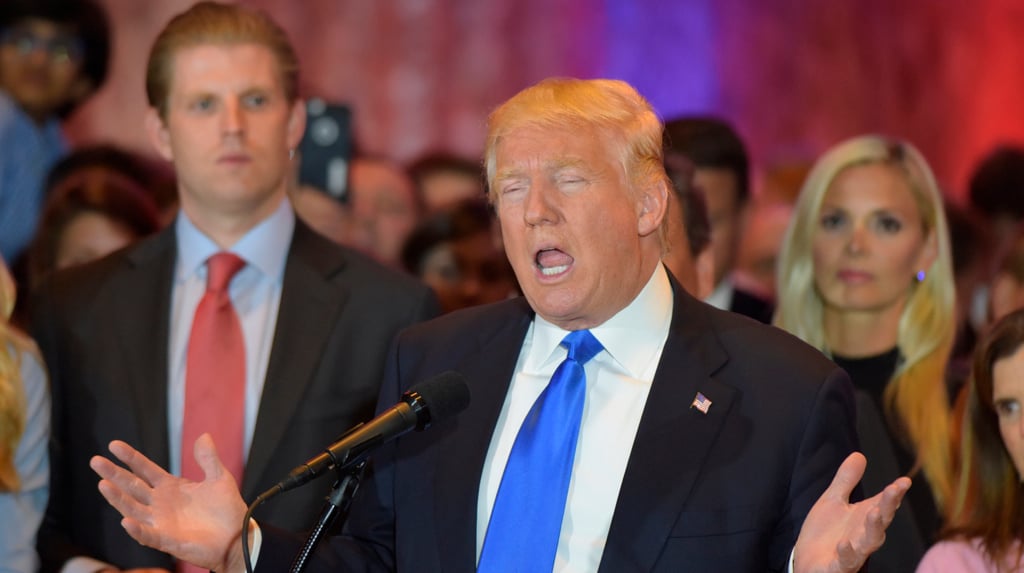Donald Trump probably never had a shot at locking down the endorsement of the Washington Post‘s editorial board. Since it started endorsing presidential candidates in 1976, the paper has—with one exception—always backed the Democratic nominee.
But on Sunday, the Post published a thundering editorial against the businessman, writing that “[a] Trump presidency would be dangerous for the nation and the world.” The editorial board also flatly stated that even though this was printed in mid-July, “we cannot salute the Republican nominee or pretend that we might endorse him this fall.”
The Post editorial board’s opposition to Trump’s candidacy was well-trod long before Sunday’s issue. Last Thursday, the morning before Trump claimed the Republican Party’s nomination with an aggressive, fear-stoking speech, the Post labeled him the “candidate of the apocalypse” for his frequent descriptions of the United States as a country beset by lawlessness. The Post editorial board is not the first to describe Trump in potential-end-of-times terms; its description of him Sunday as a “unique threat” to the Constitution and the republic echoes an argument previously pushed in May by Andrew Sullivan in New York.
Yet what’s most startling about Sunday’s piece, which took up the entirety of the editorial column, is that it appeared more than 100 days before the actual presidential election, and about three months earlier than the Post has ever endorsed—or not endorsed—a candidate for president. Its endorsements for Barack Obama came on October 17, 2008 and October 25, 2012; John Kerry picked up the paper’s nod on October 24, 2004; Jimmy Carter, the first candidate the Post endorsed, received a “modest and rather tentative case” from the editorial board on October 31, 1976.
But Fred Hiatt, the editorial page editor, says his group did not need to wait until October to rule out Trump.
“In an ordinary year we would watch the campaigns, debates, and policy papers and reach a conclusion in the fall,” he says. “For more than a year we’ve been writing editorials sounding the alarm about what his candidacy represents. A lot of our editorials are aimed at Republicans and Republican leaders, asking are you really going to let this happen to your party?”
The Post editorial board started drawing up the non-endorsement a few days before Trump’s acceptance speech, Hiatt says, but pulled the trigger after Trump’s 75-minute address in which he declared, among other things, that “I alone can fix” what ails the country.
“Certainly if anyone had any question about whether Trump would pivot or seek to become more conclusive or less divisive, I think the convention and his speech answered those hopes,” Hiatt says.
One thing Sunday’s editorial wasn’t, he insists, was a backdoor endorsement of Hillary Clinton. In fact, even Libertarian nominee Gary Johnson or Green Party nominee Jill Stein could still have a chance at winning the Post‘s support. “I would say at this point every other option is still on the table. I know some people will be skeptical of that, and I know why,” Hiatt says.
Hiatt also says that even though the two major-party’s candidates are the most unpopular in the history of modern polling, it’s very unlikely Post readers will see a repeat of 1988, when dissatisfied by both George H.W. Bush and Michael Dukakis, the editorial page punted on an endorsement.
“I’m not a big fan of that,” Hiatt says. “We encourage people to vote. Not to endorse is to duck.”



















